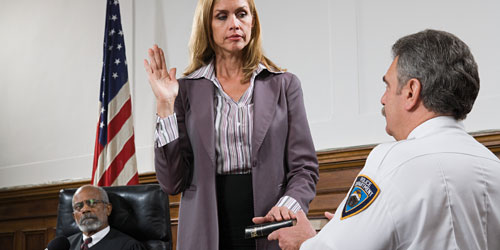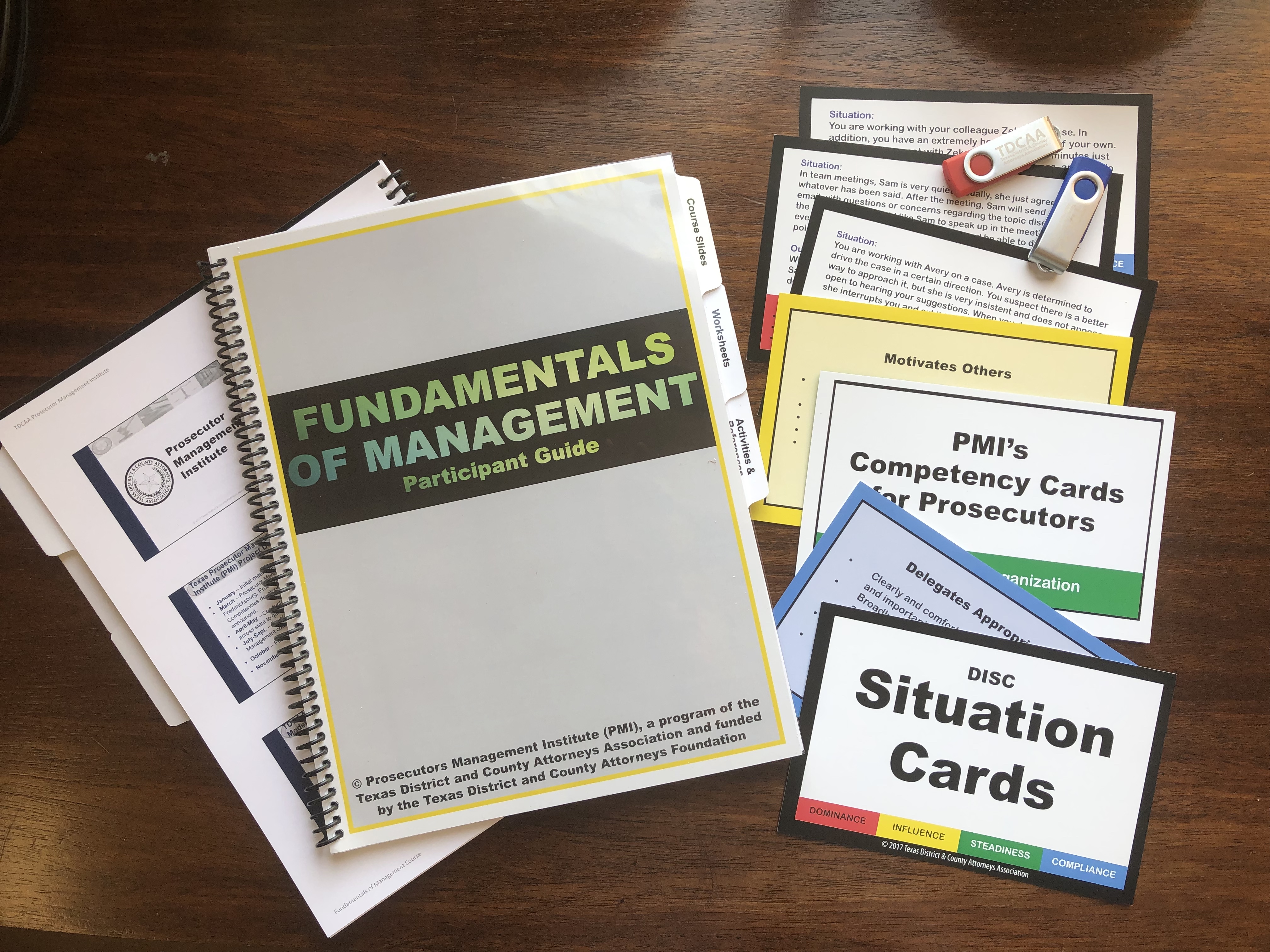There are fewer than 50 days left
in this regular session, but bills opposed by prosecutors are still making
progress. If you care about any of them, now is the time to get off the
sidelines and into the game. Five different bills to limit or abolish civil
asset forfeiture will be heard on Monday, if that’s any incentive for you. Read
on for details.
Budgets and paychecks
Earlier this week, the Senate
passed its version of HB 1 by Zerwas (R-Richmond), the General Appropriations
Act, that will fund state government for the next biennium. The Senate
substitute contains ~$248 billion in spending for the biennium, $11.9 billion of
which is new spending (a 5.1-percent increase). The bill will now go back to
the House, which will reject the Senate changes to HB 1 and seek the appointment
of a conference committee of five representatives and five senators who will
work out the differences in the two versions of the bill behind closed doors.
There are a number of items of interest to prosecutors in the competing budgets when you look at them together. For starters, all the various judicial branch pay raise options remain on the table in the two budget proposals: an across-the-board pay raise of 10 (or 15) percent, a stair-stepped raise that includes experienced judges and prosecutors, or a stair-stepped raise for those judges that excludes prosecutors. Much depends on the fate of HB 2384 by Leach (R-Plano), the pay raise bill for experienced judges and prosecutors that was approved by the committee on April 1 but has not yet been sent to the Calendars Committee (likely because the fiscal note paperwork is delayed). Meanwhile, everything else is still in play and subject to negotiation and compromise when the conference committee meets behind closed doors. That means we won’t know anything for certain on this topic until a few days before the end of the session.
On assistant prosecutor
longevity pay, the House dedicated ~$1.3 million in new general revenue to
support the fund through the next biennium. The Senate did not make that
appropriation, but we have reason to believe the Senate is waiting to see if a
long-term fix to the recurring shortfall emerges after some other budget issues
are worked out (fingers crossed).
In other budget news, the Senate
version of the budget contains more than $85 million in human
trafficking-related funding, including an additional $5.1 million to hire 19
new employees for the attorney general’s human trafficking division, plus an additional
$4.5 million to beef up the AG’s election fraud unit. The Senate’s budget also
includes $49.2 million in additional funding for DPS crime lab services,
compared to Article XI of the House version, which contains $26.6 million to
support the hiring of an additional 122 forensic analysists and related staff.
Either way, it looks like the state may come through with some much-needed
relief for those of you waiting (and waiting … and waiting …) on crime lab
results.
Bail bond reform
Monday’s House Criminal
Jurisprudence Committee lasted almost 10 hours, ending around 2 o’clock on
Tuesday morning. A significant portion of that meeting consisted of a
discussion of various bail bond reform bills (HB 1323, HB 2020, and HB 3283).
We’d love to provide you with some insight into what the ultimate result will
be, but frankly, this issue is still a mess with no clear consensus on what the
legislature will do about it, if anything. We’ll let you know more when we know
more.
Grand jury changes, Round 2
A week after hearing HB 2427 by Reynolds (D-Missouri City)—which is still pending without a vote in that committee—the House Criminal Jurisprudence Committee took up HB 2398 by S. Thompson (D-Houston) for Round 2 of this policy debate. House Bill 2398 is the broad version from last session that not only puts defense counsel in the grand jury room with their clients but also provides greater discovery, requires recording of proceedings, increases delays, and allows prosecutors to be sued for vexatious litigation, among other “highlights.”
Supporters testifying for the
bill were the Texas Defender Service, the Innocence Project of Texas, Just
Liberty, and three witnesses from the Texas Public Policy Foundation/Right on
Crime, which has been the biggest advocate for these changes. Prosecutors
testifying against the bill were Ellis County C&DA Patrick Wilson, Brazoria
County CDA Jeri Yenne, Galveston County CDA Jack Roady, Cherokee County DA
Elmer Beckworth, and Harris County Assistant DAs Natasha Sinclair and Johna
Stallings.
You can watch the debate for yourself at this link beginning at the 00:33:20 mark. Most of the discussion centered on the question of whether defense lawyers should be allowed in the grand jury with their clients (for a second week in a row). The major concern from some committee members seemed to be a fear that otherwise-innocent witnesses and suspects are being misled or coerced into perjuring themselves or otherwise admitting conduct that gets them indicted under circumstances that would not happen if they had a lawyer with them during questioning before the grand jury. Testimony from some supporters of the bill also implied that the bill’s changes are needed because prosecutors cannot be trusted in these proceedings. The prosecutors opposing the bill testified to the various reasons why those fears are misplaced and why this proposed cure would be much worse than the supposed ill it seeks to cure, especially in serious and complex criminal cases such as officer-involved shootings, organized criminal activity, and human trafficking cases. It was also pointed out how no state in the Union both requires grand jury indictments and also imposes such extensive—and expensive—requirements on their grand juries. Finally, we note that there was much about this bill and its genesis in certain real-world cases that was not brought up before the committee—and indeed, never gets discussed in public—but you can be sure that those cases come up behind closed doors.
We’ll keep you posted if the bill receives a vote in the House Criminal Jurisprudence Committee, but feel free to reach out to the members of that committee if you were unable to register your position in person this week.
Attorney General concurrent jurisdiction, Round 2
In between the grand debate and the discussion on bail reform, HB 3979 by Leach (R-Plano) was heard by the committee. That bill gives the attorney general the independent authority to prosecute “multijurisdictional” human trafficking cases—meaning any case occurring in more than one county, even if wholly within a multi-county district attorney’s judicial district—and imposes on local prosecutors a duty to report to the AG on all trafficking cases in their jurisdictions so that the AG can prosecute those cases if the local DAs don’t. This new authority also empowers the AG to prosecute all other crimes arising from the same trafficking criminal episode.
At the hearing, the bill’s author laid out the narrative supporting the alleged need for this bill: A UT School of Social Work study from 2016 estimated that there are 313,000 trafficking victims in Texas, but in 2017, prosecutors charged only 61 trafficking cases and 81 compelling prosecution cases, and in 2018, only 121 human trafficking and 106 compelling prostitution cases were charged. The message? Local prosecutors aren’t doing a good enough job with sex trafficking cases, so the legislature must empower the AG to step in and do more of it. Never mind that the cited study said that 234,000 of those victims are adult labor trafficking victims, or that both that study and the OCA report cited for the prosecution numbers come with significant caveats from their authors about the limitation of their data—the narrative is the narrative, and that is the field on which the debate is being held.
Several prosecutors testified against
the bill, including Travis County DA Margaret Moore, Montgomery County DA Brett
Ligon, Comal County CDA Jennifer Tharp, El Paso County DA Jaime Esparza,
Tarrant County Asst. CDA Vincent Giardino, and Dallas County Asst. CDA Amy
Derrick. Each attempted to educate the panel that the problem isn’t a lack of
prosecution by district attorneys but a lack of arrests by law enforcement. Recently-obtained
DPS CCH data for human trafficking and continuous human trafficking crimes revealed
only 143 statewide arrests in 2017 and 172 statewide arrests in 2018. Those
arrests took place in only 26 counties, so most district attorneys have never
had a trafficking case brought to them by their law enforcement agencies. Prosecutors
stressed that they enjoy a good working relationship with the attorney general,
and that the award of original criminal jurisdiction to the AG is unnecessary
and ultimately harmful to a unified effort to combat human trafficking.
Unfortunately, proponents of
giving the attorney general this new power continue to sidestep the
jurisdiction conflicts by arguing that this is merely another tool in the fight
against this horrible crime—and who can be against another tool, right? And to
legislators who are talking about spending tens of millions of additional
dollars on combatting human trafficking, it may be preferable to give additional
money and power to someone who is across the street in Austin rather than a
group of local, independent officials scattered across the state. This is
especially true now that the AG has become a one-stop shop, with investigation
and prosecution under one roof (like the Feds), despite the fact that this
proposed AG authority almost certainly crosses the line into a separation of
powers violation under the Texas constitution.
Ultimately, if the estimates of the prevalence of trafficking in this state are accurate, it is unrealistic to think that any attorney general can make a serious dent in the numbers of these crimes. The problem is too large and pervasive to be handled from an office in Austin. Only local district attorneys—who already represent the State of Texas in every corner of this state—can provide a comprehensive prosecutorial solution to this problem, and only then if they are brought those cases by law enforcement agencies who have the funding and training necessary to carry out that mission. The problem is that no one can convey that message to legislators except you—and if you don’t start conveying it, the issue may soon be moot. (To get a better idea of the tenor of the discussion, you can watch the debate for yourself at this link beginning at the 04:39:35 mark.)
House Bill 3979 was left pending in the Criminal Jurisprudence Committee but could be voted upon as soon as Monday. In the Senate, its companion, SB 1257 by Huffman (R-Houston), was voted out of committee last week and could be heard on the Senate floor soon. The bill author needs 19 (of 31) votes to bring the bill up for consideration on the Senate floor, meaning that any combination of 13 senators who oppose it can keep it from passing.
What Schoolhouse Rock did not teach you
That
old “How a bill becomes a law” episode may have covered the basics, but it
neglected to mention that the entire legislative system is set up to kill
bills, not to pass them. That’s why only roughly 20 percent of filed bills ever
become law. The primary hurdle is at the committee level (which is why we spend
so much time updating you on what is being heard in those hearings). But only
slightly less well-known is what happens to bills that emerge from committee,
which varies depending on which chamber you are discussing.
In
our state Senate, senators may set their bills that have a committee’s stamp of
approval on the Intent Calendar to indicate their … well, intent (duh) to bring
the bill up for a vote on the floor. That requires a three-fifths (60 percent)
vote, or 19 of the 31 senators (assuming everyone is in attendance at that
time). That hurdle rarely comes into play, but it does happen—just ask the
author of SB 2, the Senate’s property tax cap bill that has been stuck in limbo
for almost two months. But even if a Senate bill can clear that hurdle, there
is another one looming even larger. Senate rules give the Lieutenant Governor,
as presiding officer, the sole authority to recognize a senator to bring up a
bill. If the Lite Guv doesn’t like a bill, he can ignore the author’s request
to bring up that bill and kill it—even if it has unanimous support. It’s like a
governor’s veto, only this one cannot be overridden. (And now you know one of
the reasons our state’s lieutenant governor is so powerful.) This system is
also why there is no way to know what bills on each day’s Intent Calendar will
be heard when—it is entirely up to the whim of the Lite Guv.
Across
the rotunda, House rules are both more (little-D) democratic and more orderly
(which is something of a paradox). Rather than give the Speaker powers similar
to those of the Lite Guv, the House uses a Calendars Committee of 11
representatives who decide (without any public testimony) not only which bills
get debated on the House floor and which don’t, but also in what order the
lucky winners get heard. This makes the Calendars Committee members
increasingly powerful as the session goes on and bills start dying on the vine
due to various deadlines that kick in a few weeks from now. Therefore, if you
are interested in a House bill that has received initial committee approval,
and if you know any members of the Calendars Committee, now is the time to give
them a ring and let them know your thoughts on that bill. Many a House bill
will die a mysterious death in the Calendars Committee with nary a fingerprint left
behind to prove what happened to it—and that is a feature of this system, not a
bug. [Note: Both chambers also have “uncontested” calendars, but we’ll save
that lesson for later.]
For the curious, the members of the House Calendars Committee are: Four Price (R-Amarillo), chair; Joe Moody (D-El Paso), vice-chair; Joe Deshotel (D-Beaumont), John Frullo (R-Lubbock), Craig Goldman (R-Fort Worth), Oscar Longoria (D-Mission), Will Metcalf (R-Conroe), Tom Oliverson (R-Houston), Eddie Rodriguez (D-Austin), Toni Rose (D-Dallas), and John Wray (R-Waxahachie).
Bills currently in (or headed
to) that committee include:
- HB 8 by Neave (omnibus sexual assault exams
bill)
- HB 63 by Moody (civil fine for marijuana)
- HB 64 by Canales (expunctions of deferred
adjudications)
- HB 176 by Canales (no waiver of rights to
expunction/OND)
- HB 281 by Middleton (no lobbying by local
officials)
- HB 344 by Dutton (juvenile “raise the age” bill)
- HB 433 by Shaheen (disclosure of public money
spent to influence legislation)
- HB 667 by K. King (sexual assault enhancement
for incest)
- HB 902 by Landgraf (increasing punishments for
assaulting pregnant women)
- HB 1139 by S. Thompson (pre-trial death penalty
determination of ID)
- HB 1661 by Herrero (changes to continuous FV
offense)
- HB 1936 by Rose (death penalty exemption for
serious mental illness)
As the session goes on, we’ll
continue to let you know when certain bills get to the Calendars Committee;
after that, it’s up to you to act on that information.
House calendar
The House will take up HB 2 by
Burrows (R-Lubbock) today; if the building is still left standing upon
completion of that debate, we’ll let you know in our next update what is on tap
for next week.
Senate Intent calendar
This list changes daily, but
as of now, eligible bills on Senate Intent include: SB 2 by Bettencourt
(property tax caps), SB 29 by Hall (ban on local gov’t and association
lobbying), and SB 1259 by Huffman (fertility fraud).
Upcoming committee hearings
Here are summaries of the
relevant committee notices posted so far:
Monday, April 15
- HB 4504 by Landgraf creating a system for the
non-partisan election and retention of judges
- HB 3061 by Allison authorizing a study on the
selection of certain trial and appellate judges
- HB 3449 by Smithee providing employment
protections for jury service
- HB 1222 by Wray increasing the salaries of Texas’
Chief Justice and Presiding Judge
- HB 4441 by Neave requiring the reporting to OCA
of various data on state jail felony diversions
- HJR 63 by Pacheco increasing the experience
required to serve as a judge
Asset forfeiture bills:
- HB 171 by Canales applying the exclusionary rule
to civil asset forfeiture proceedings
- HB 182 by Canales requiring clear and convincing
evidence for forfeitures and establishing a minimum threshold for federal
equitable sharing
- HB 404 by S. Thompson repealing civil asset
forfeiture
- HB 479 by Dutton requiring a conviction for
asset forfeiture
- HB 1615 by Schaefer requiring State to disprove
innocent owner defense in forfeitures
- HB 386 by Burns authorizing non-lawyer JPs to
issue DWI blood search warrants
- HB 472 by Dutton eliminating the death penalty
for convictions under PC §7.02(b) (law of parties – conspiracy)
- HB 828 by Rose providing jail credits toward
discharge of fines and costs
- HB 980 by Beckley repealing the criminal offense
of homosexual conduct
- HB 1029 by Moody making CAC videos subject to
regular discovery procedures
- HB 1445 by Rosenthal creating an offense for
carrying a firearm while intoxicated
- HB 1498 by Metcalf expanding and clarifying the
scope of continuous sexual abuse of a child
- HB 1811 by Murr applying high-BAC enhancement to
boating while intoxicated cases
- HB 2034 by VanDeaver increasing the penalty for
invasive visual recording of a victim under 18
- HB 2361 by Moody clarifying jurisdiction to
prosecute certain business entities
- HB 2381 by Dutton requiring parole for certain
re-arrested parolees
- HB 2754 by White barring arrests for certain
Class C offenses and FTAs and limiting capiases
- HB 2896 by Collier prohibiting a plea by
citation or lawyer in Class C family violence cases
- HB 3281 by Hinojosa barring the use of a “gay
panic” defense
- HB 3490 by Cole criminalizing abusive
communications on the Internet
- HB 3539 by Rose requiring preferential
appointment of public defenders in capital cases
- HB 3589 by Sanford granting various jail credits
toward laying out fines in Class C cases
- HB 3729 by Shaheen making it a crime for an
animal abuser to subsequently possess an animal
- HB 3824 by Sherman authorizing family violence
findings for stalking and certain PC Chapter 25 offenses
- HB 3938 by Moody mandating the consideration of
victims’ views in death penalty cases
- HB 4237 by Turner relating to stalking
- HB 4287 by Zedler barring community supervision
for various sex trafficking and prostitution crimes
- HB 4323 by Reynolds making confidential certain
information about child victims
Tuesday, April 16
Wednesday, April 17
Thursday, April 18
[check our next update for bills set on these dates]
If you want to learn more
about a bill or find out how to get involved for or against it, contact Shannon
for details.
Other bills on the move
As the volume of bills moving
through the system increases, our ability to report on them decreases. Going
forward, we must necessarily give you a “skinnier” summary of what is happening
in this new section. With that in mind, here are just a fraction of the bills
that are making progress right now.
Passed the House, headed to
the Senate: HB 226 by Krause (repealing various non-Penal Code crimes), HB 446
by Moody (legalizing knuckles and clubs [amended]), HB 869 by Hefner (gas pump
card skimmers), HB 1030 by Moody (changing jury instructions for death penalty
special issues [amended]).
Approved by a House committee:
HB 309 by Moody (indecent assault), HB 335 by Dutton (Class C punishment for
POM < 1 oz.), HB 353 by Blanco (accessing cell site information), HB 1539 by
Geren (evidence tampering in misdemeanor cases), HB 1609 by Tinderholt
(confidentiality of grand jurors’ names).
Passed the Senate, headed to
the House: SB 21 by Huffman (increasing smoking age to 21), SB 325 by Huffman
(statewide protective order registry), SB 1640 by Watson (PIA walking quorum
fix).
Approved by a Senate
committee: SB 719 by Fallon (death penalty for murder of child under 15), SB
891 by Huffman (omnibus new courts bill), SB 1259 by Huffman (fertility fraud).
Scattershots
Here are some stories and articles we don’t have time
to summarize, but they might be of interest to some of you:
Quotes of the Week
“We’re already behind 42 other states. … It’s the proper time and this bill is a great start.”
Rick Hardcastle, former state representative, testifying before the House Agriculture and Livestock Committee in favor of HB 1325 by T. King (D-Batesville), which would legalize industrial hemp and certain hemp-derived products such as CBD oil that contain less than 0.3 percent of THC. The bill was approved by that committee and is now pending in the House Calendars Committee.
“I’m the Speaker of the House. I don’t need to be in that type of confrontation. So I left.”
House Speaker Dennis Bonnen (R-Angleton), after leaving an event at which he was seated next to a gun rights activist who controversially visited Bonnen’s home last week.
“If a member is a catalyst of putting another member in danger, that behavior is not going to be rewarded.”
State Rep. Terry Canales (D-Edinburg), providing one of several explanations for why Rep. Jonathan Stickland’s (R-Bedford) bill to ban red light cameras has not been called up for a vote after the recent dust-up over his constitutional carry bill.



